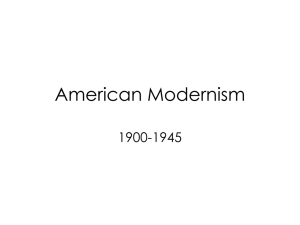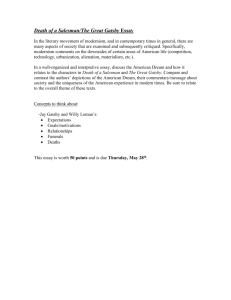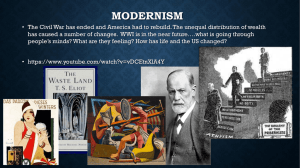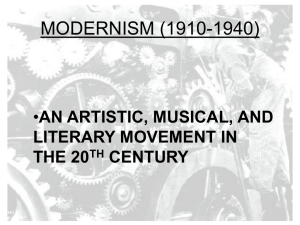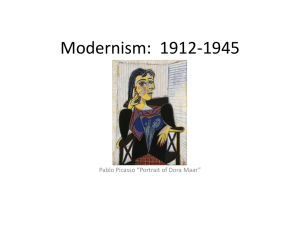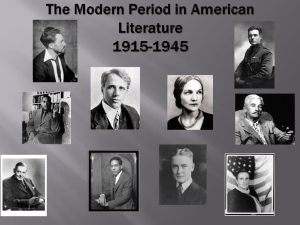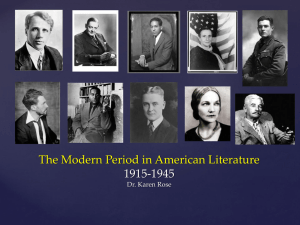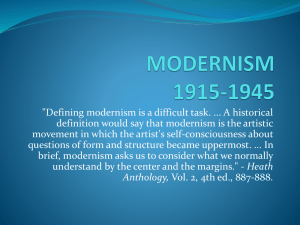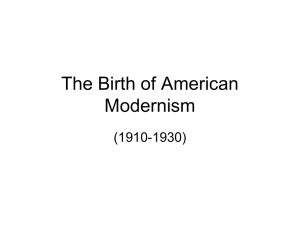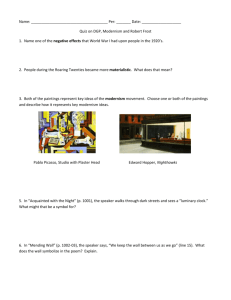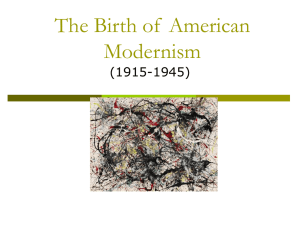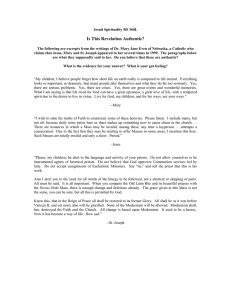American Modernism
advertisement
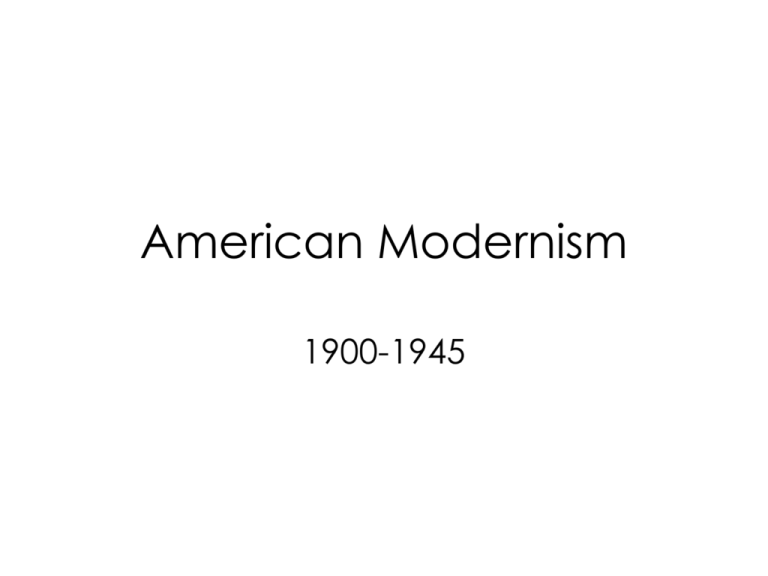
American Modernism 1900-1945 Between World Wars • Many historians have described the period between the two World Wars as a “traumatic coming of age.” • The lives of these Americans were radically different from those of their parents. Modernism • Embraced nontraditional syntax and forms. • Challenged tradition • Writers wanted to move beyond Realism to introduce such concepts as disjointed timelines. • An overarching theme of Modernism was “emancipation” Social Norms/Cultural Sureties • Women were given the right to vote in 1920. • Hemlines raised; Margaret Sanger introduces the idea of birth control. • Writers begin to explore these new ideas. Theme of Alienation • Sense of alienation in literature: – The character belongs to a “lost generation” – The character suffers from a “dissociation of sensibility”—separation of thought from feeling (T. S. Eliot) – The character has “a Dream deferred” (Langston Hughes). Valorization of the Individual • Characters are heroic in the face of a future they can’t control. • Demonstrates the uncertainty felt by individuals living in this era. • Example: Jay Gatsby in The Great Gatsby Urbanscapes • Life in the city differs from life on the farm; writers began to explore city life. • Conflicts begin to center on society.
